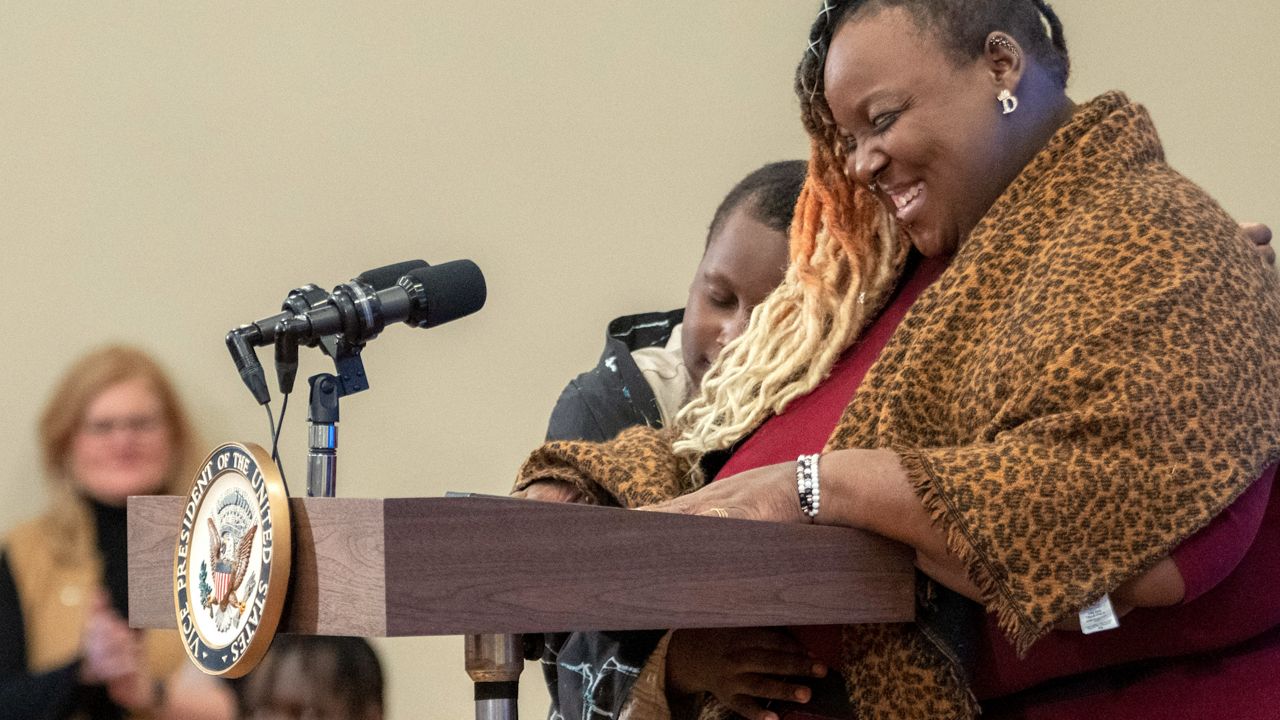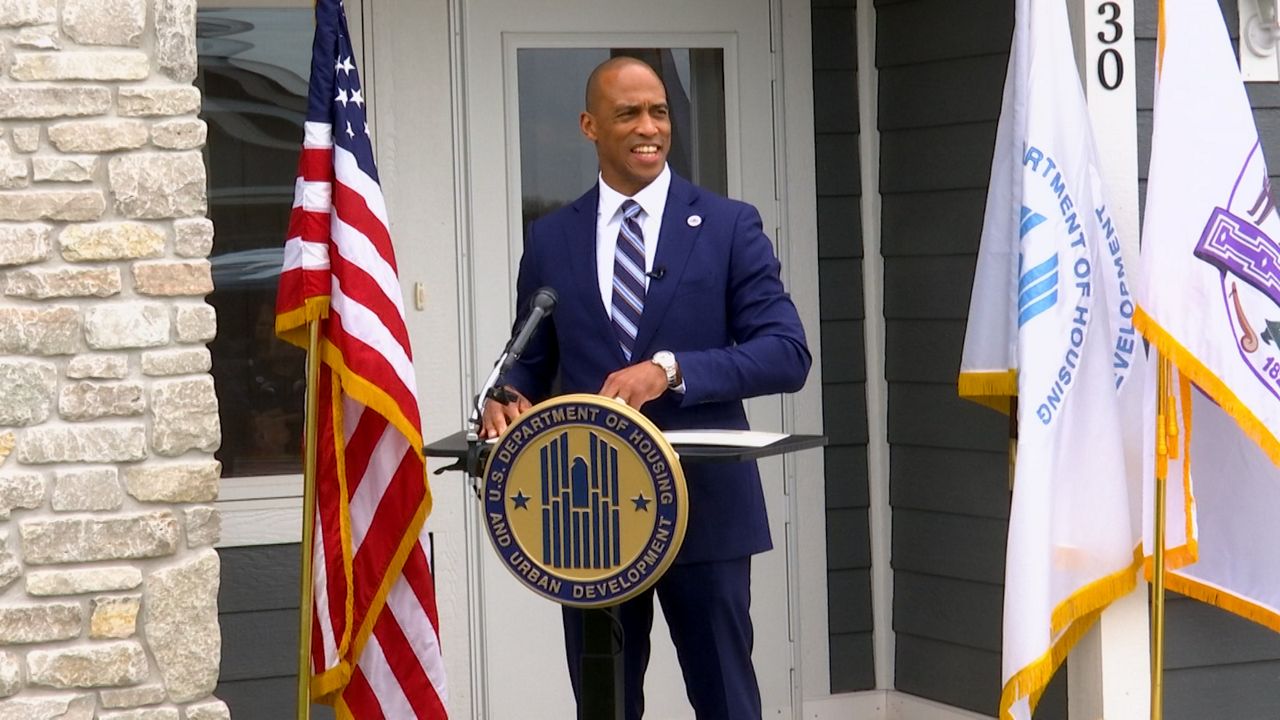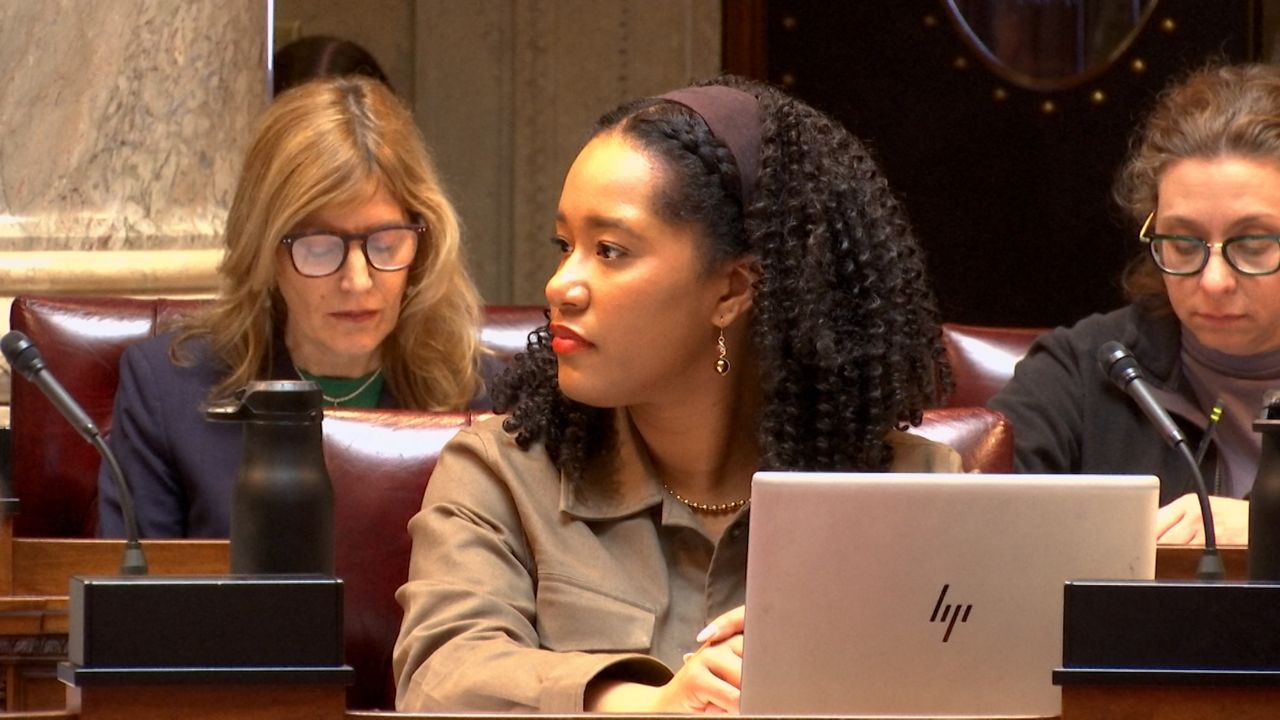MILWAUKEE — Wisconsin has been prominently featured in some way every night of the Democratic National Convention (DNC) so far. Wednesday evening was no exception as a few Milwaukeeans shared their messages on the national stage with delegates from across America.
The connection between the Wisconsinites who spoke on the third night was simply the Bipartisan Infrastructure Law (BIL). From the mayor to the citizens he represents, delegates heard how that landmark legislation hit close to home for people living in Milwaukee.
“In Wisconsin, keeping promises is important, so is making amends for your mistakes,” Milwaukee Mayor Cavalier Johnson told the crowd gathered at the United Center in Chicago.
Johnson said mistakes happened nearly 60 years ago in the Bronzeville neighborhood of his city when urban renewal and the construction of I-94 and I-43 ripped the community apart.
“Under Kamala Harris and Joe Biden, we’re bringing Bronzeville back with more green space, bike paths, and walkable streets to serve people who actually live there,” Johnson added.
Johnson said those improvements are possible thanks to $36 million for the city’s “6th Street Complete Streets” project funded by the Inflation Reduction Act and Bipartisan Infrastructure Law, which also helped Milwaukeeans tackle lead pipes.
“Lead was everywhere—in our pipes, in our paint, and in our soil,” Deanna Branch of Milwaukee explained.
Branch’s son, Aiden, was hospitalized for lead poisoning when he was just two years old.
Now, she’s an advocate and was even invited by Vice President Kamala Harris to speak at the White House Lead Pipe Summit in January 2023.

“Kamala Harris will make sure everyone can drink clean water and be, in Aiden’s words, lead-free superheroes,” Branch said.
Inching closer to that goal has been possible because of people like Rashawn Spivey. His company, Hero Plumbing, has replaced more than a thousand pipes at homes across Milwaukee, which President Joe Biden saw for himself during a visit late last year.
“When President Biden and Vice President Harris announced their goal to replace every lead pipe in America, Hero stepped up to help make that vision a reality,” Spivey said.
Wisconsin has received nearly $6.9 billion for infrastructure since Biden took office. That figure includes $1.6 billion for high-speed internet, another $4 billion toward roads and bridges and some electric charging stations, and $811 million to improve water infrastructure such as lead pipes.
However, it’s not just Milwaukee that has benefited. Roughly a billion dollars is earmarked to help replace the Blatnik Bridge between Superior, Wisconsin and Duluth, Minnesota. Meanwhile, Dane County, which includes Madison, has used clean energy tax credits from the Inflation Reduction Act to buy solar panels and invest in geothermal energy.










